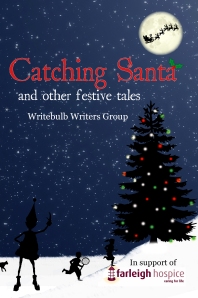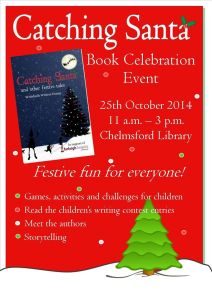by Anna Buttimore
The ebook revolution is upon us, and with free publishing now available to everyone the landscape for writers has changed dramatically over the last ten years. Anyone, anywhere, with any level of skill can now write a book and publish it, at no cost to themselves, and it will be indistinguishable from a book published by a large, established publisher, like Penguin, HarperCollins or Macmillan.
Many authors, including established authors with traditional publishers, are celebrating and embracing self-publishing. Some are putting out their out-of-print back catalogue in ebook format, while others are eschewing traditional publishing altogether and going for the bigger royalties percentage promised by self-publishing.
And yet I continue to send my work out to agent after agent, publisher after publisher, again and again. I have now clocked up fifty-seven rejections for my sci-fi magnum opus, Emon and the Emperor, and despite the regular assurances (often on the rejection slips) that publishing is a very subjective business and someone else may love my work, it’s hard not to become disheartened and lose confidence in my own abilities.
So the obvious question is why? Why do I continue to chase that elusive publishing contract, or enthusiastic agent, when I could just spend an hour on Kindle Direct Publishing and have Emon and the Emperor for sale around the world by this evening?
I have experience of both types of publishing. My first five books were traditionally published by small presses primarily serving the American midwest. My first two were very successful and even made me a nice bit of money. The next three, not so much. By that time the number of available books had grown considerably (partly due to the self-publishing revolution), but the number of readers hadn’t, and the amount of promotion the publishers did had dropped to almost zero, so the royalties didn’t break the £1,000 mark.
My sixth book, co-written with Hellen Riebold, was self-published because of its controversial subject matter. Royalties from that, so far, are zero. Well, not quite zero, but Amazon only send you a cheque once your royalties reach a certain level, and we’re not there yet.
So if I make no money from either my traditionally published or self-published books, again the question has to be why am I still holding out to get my next effort traditionally published? Why not just self-publish it?
I’d like to say it’s because I like getting my book professionally edited multiple times as part of the package. I like having professional cover designers, typesetters, etc., make my book look as good as it possibly can. With my first two books I really liked seeing them in catalogues, end-of-aisle displays, and on posters in bookstore windows. I like not having to do any complicated stuff, and having a team of professionals make my book as good as it can be, then send me twenty free copies. I like having my book actually appear on real shelves in real bookstores where people can browse through it and maybe even take it to the cash desk. (And that aspect shouldn’t be underestimated – my books have all sold far more copies in stores in paperback than they have as ebooks online.)
Those things are all very nice. But actually the reason I like traditional publishing best is because of the validation. I like knowing that someone believes in my work enough to invest in it. I like imagining that industry professionals think I’m good at what I do. I like being taken seriously as an author: when anyone with any level of talent (or none) can put out a book, I like being set apart from them and recognised as someone whose work was actually put into print based on its own merits.
I love this book. Ultimately I believe it is good enough to be traditionally published and to be a success. But I really need someone in the business to agree with me. So I will keep on sending Emon and the Emperor to agent after agent, publisher after publisher, until I run out of agents and publishers to send it to. With fifty-seven rejections already, that might be quite soon.






